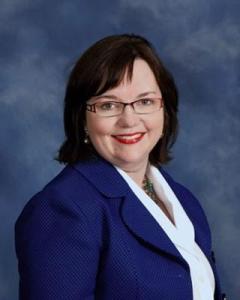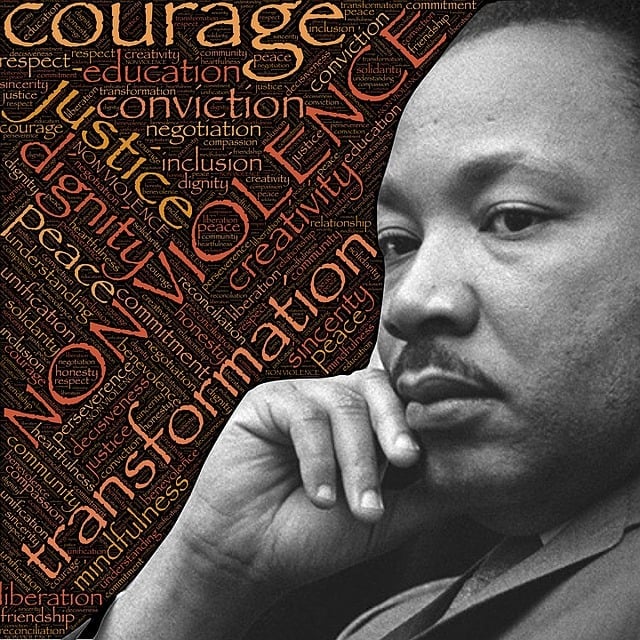
Christ is an inclusive Savior. During his earthly ministry, he sought out prostitutes, tax collectors, thieves and other people despised by first century religious leaders and ordinary people.
He even uses the example of a Samaritan when someone asks, “Who is my neighbor?” In Luke 10:25-37, he tells the story of a traveler who is beaten and left for dead on a road.
The traveler is presumably Jewish, given the fact that Christ’s audience was Jewish. A priest and a Levite see the injured man but pass by without offering any help.
A third traveler – a Samaritan – not only stops, but also bandages the man and takes him to an inn, where he can recover.
The idea of a Samaritan helping a Jew was revolutionary in Christ’s time. Jews despised Samaritans for desecrating their temple, and Samaritans hated Jews for destroying their temple.
Yet, the Samaritan in Christ’s parable understands that the injured man is his neighbor and helps him.
Human Hatred & Prejudice
Christ was and is oblivious to differences that divide human beings. He offers love, redemption and salvation to everyone.
His followers are less welcoming. We sometimes close our doors, hearts and minds to people who have a different skin color or cultural background, embrace different values or behave differently in some way.
This isn’t to say non-Christians are free of prejudice, anger and hatred. They can be as prejudiced as Christians can.
The difference is that Christians claim to follow Jesus Christ, who commands his followers to love one another. He does not tell us to love someone unless the other person is ________ (you can fill in the blank).
How should we, as Christians, deal with prejudice, anger and hatred toward others? One of the first steps is to admit that we are prejudiced.
Sex and Christ’s Church
Gender issues are a touchy subject for many Christians.
Homosexuality is particularly difficult and divisive. Case in point: the United Methodist Church (UMC) officially split over gay marriage and gay ordination earlier this year.
Dozens of conservative congregations left the denomination in favor of the new Global Methodist Church, which began official operations on May 1.
Progressive churches were left to pick up the pieces.
Methodists aren’t alone in their divisive ways. The Evangelical Lutheran Church, the Episcopal Church and the Presbyterian Church (U.S.A.) also have struggled with gay and gender identification issues for many years, according to the Pew Research Center, a non-profit and non-profit organization that conducts research in a number of areas including religion and public life.
Racism and White Christianity
Race is another deeply divisive issue within America’s white Christian churches. When I say “deeply,” I mean deeply embedded.
It divides us to the very core of our beings and affects our lives and thinking whether we admit it or not.
The first slaves set foot on America’s shores in 1619. Slavery became entrenched in American colonial life, and ratification of the U.S. Constitution in 1789 codified its existence for decades to come.
Southern slave owners thought that slavery was necessary to their economic survival and used the Bible to defend the abomination. They came to see blacks as less than human.
Quakers and others in the North cited the Golden Rule (“Do unto others…”) in condemning it.
A bloody civil war finally ended American slavery in the late 19th century, but it did nothing to address the racism at its heart.
White racists in the South – i.e., the Bible Belt — used Jim Crow laws to enforce segregation through most of the 20th century. The Civil Rights Act of 1964 and the Voting Rights Act of 1965 ended Jim Crow but could not end people’s prejudices.
Racism receded into the background in the early 21st century, and the U.S. even elected a black president in 2008. Barack Obama’s election and re-election incited racists to new levels of hatred.
They simply could not accept an African American in the White House and voted in large numbers for a man who shared their beliefs in 2016.
Donald Trump embraced Christianity in order to win conservative voters, and he received an unthinkable 81 percent of the white, born-again/evangelical Christian vote, according to the Pew Research Center.
All the while, he incited his followers to unleash an un-Christian wave of violence against innocent victims whose only “sin” was their color, nationality, gender or sexual orientation.
Hate crimes rose during the Trump administration, with the FBI reporting a 32 percent increase between 2019 and 2020.
Hearts Filled with Hatred
Homosexuality and race aren’t the only issues that divide American Christians.
Ask any two Christians about their beliefs on abortion, politics, women in the ministry, heaven and hell, or the last judgment, for example, and you are likely to hear very different answers.
The division over these issues becomes heated, and hate rears its ugly head.
“No Room for Christ”
In a recent conversation, the Rev. Amy Cook told me that “hatred in our hearts leaves no room for Christ.” She is convinced that there is too much hatred among churchgoers with different views.
The Rev. Cook has served as a minister in the United Methodist Church for 20 years and is currently my pastor at Loudon United Methodist Church in Loudon, Tennessee. She earned a bachelor’s degree in English with an education certification from Eastern Kentucky University and a master’s of divinity degree from Asbury Theological Seminary.
She said that “a lot of the hatred is emotional,” and noted, “the other person wants to hurt you, and there are no magic words for dealing with it.”
Ridding Ourselves of “Us vs. Them” Mentality
How can Christians handle hatred that’s directed at themselves, other members of their church, friends and neighbors, or people who are somehow “different”?
“You can’t hate or beat people into love. You can’t abuse people until they love you,” Rev. Cook said. “But if you can think of the other person as having the image of God, as you do, the ‘us vs. them’ mentality becomes an ‘all of us’ mentality.”
God wants a relationship with us, she added.
“When someone is radically aggressive about being right, more so than being one with Christ, distance yourself from them.
“You can be right, or you can be in a relationship, but you can’t be both,” she said. “It’s not about being right. It’s about justice and mercy.”
Rapidly Losing Ground
American Christians are warring over social issues, and all the while, they are losing members at an alarming rate.
As late as 1976, the percentage of Americans who identified as Christian stood at 80+ percent. Now, it is 44 percent, according to the Public Religion Research Institute, a nonpartisan research organization.
The loss of members has been a hemorrhage rather than a trickle. The reasons are complicated, but divisions within American Christianity may be one contributing factor.
Another is the fact that millennials’ parents did not encourage their children to attend church, according to the Rev. Cook.
Consequently, millennials are much less likely to attend or join churches, and they don’t raise their children in the Christian faith, she said.
People born between the mid- to late-1990s and the 2010s – that is, Generation Z — are more likely to be unaffiliated and to identify as agnostic or atheist than previous generations, the Pew center said.
“Some young people never attend church, while others attend sporadically but don’t join. To them, attending once a month is regular attendance,” the Rev. Cook noted. “They simply have less interest in church attendance.
“The whole world changed in the 1960s, and Americans stopped plugging into a church,” she said. “Organized religion became less relevant.”
“Love Is Like a Blanket”
But people’s attitudes can change. Christianity may divide people on some issues, but it also may bring people together.
“Church is an opportunity for people to get together with other people who don’t share the same skin color, culture or politics,” Rev. Cook said.
“I can, for example, have a friendly cup of coffee and conversation with church members whose politics are very different from mine.”
Christians need to sit across a table and actually see and listen to each other, she said.
“Church can be multi-cultural and multi-generational. It can give you opportunities to experience diversity of thought,” she added.
“Diversity is a good thing about the Methodist church.
“We need to remember that God created us to be in relationship with Him and one another.
“Sometimes, we make a mess of it, but love is like a blanket. It covers a lot of things,” Rev. Cook said.













